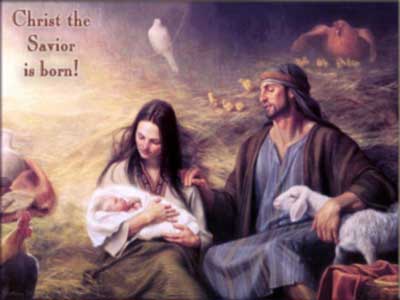



l Home l Articles l Music on Line l Web Board l Guest Book l Catholic Links l นักบุญทั้งหลาย l กุหลาบทิพย์ l Fordec l Contact Us l
พระสงฆ์และนักปราชญ์
โทมัส มีตำแหน่งเป็นท่านเคานท์แห่งอากวีโน ในอิตาลี สำเร็จการศึกษาจากมหาวิทยาลัยแห่งเนเปิล แล้วไปอยู่กับคณะสงฆ์โดมินิกัน พี่ชายสองคนของท่านได้นำท่านกลับไปกักขังไว้ในปราสาทตลอดเวลา 2 ปี เพื่อมิให้ท่านหนีไปบวช
สมเด็จพระสันตะปาปาทรงเรียกให้โทมัสเข้าพบ ทั้งยังได้ทรงเตือนมารดา และพี่ชายของโทมัสมิให้ขัดขวางเสรีภาพในการบวชของโทมัส ท่านจึงกลับไปยังคณะโดมินิกัน ทางคณะส่งโทมัสไปศึกษาต่อในฝรั่งเศสและเยอรมัน เมื่อโทมัสบวชเป็นพระสงฆ์แล้ว ก็ได้เป็นอาจารย์มีชื่อเสียงโด่งดังมาก ท่านชอบเทศน์สอนให้คนจนฟัง และเขียนข้อพระธรรมคำสอน บทภาวนา บทสวดสรรเสริญ ศีลมหาสนิท ที่พระศาสนจักรบังคับใช้ทุกวันนี้ หนังสือปรัชญาและเทวศาสตร์ที่ท่านเขียนเป็นคำสอนที่สมบูรณ์ที่สุดอันดับหนึ่ง สังคายนาวาติกันที่ 2 ก็ได้อ้างอิงคำสั่งสอนของท่านอย่างมากทีเดียว ท่านได้รับเกียรติด้วยการที่พระศาสนจักรขนานนามท่านว่า "นักปราชญ์เทวดา"
พระเยซูเจ้าประจักษ์มาขณะที่โทมัสเข้าณาณ ตรัสถามว่า "ท่านต้องการรางวัลอะไรจากเรา" โทมัสทูลตอบว่า "ข้าพเจ้าไม่ปรารถนาสิ่งใดเลย นอกจากพระองค์แต่ผู้เดียวเท่านั้น"
THOMAS AQUINAS
Also known as
Doctor Angelicus; Doctor Communis; Great Synthesizer; The Dumb Ox; The Universal TeacherMemorial
28 JanuaryProfile
Son of the Count of Aquino, born in the family castle in Lombardy near Naples. Educated by Benedictine monks at Monte Cassino, and at the University of Naples. He secretly joined the medicant Dominican friars in 1244. His noble family kidnapped and imprisoned him for a year to keep him out of sight, and deprogram him, but he rejoined his order in 1245.
He studied in Paris from 1245-1248 under Saint Albert the Great, then accompanied Albertus to Cologne. Ordained in 1250, then returned to Paris to teach. Taught theology at University of Paris. He wrote defenses of the mendicant orders, commentaries on Aristotle and Lombard's Sentences, and some bible-related works, usually by dictating to secretaries. He won his doctorate, and taught in several Italian cities. Recalled by king and university to Paris in 1269, then recalled to Naples in 1272 where he was appointed regent of studies while working on the Summa Theologica.
On 6 December 1273 he experienced a divine revelation which so enraptured him that he abandoned the Summa, saying that it and his other writing were so much straw in the wind compared to the reality of the divine glory. He died four months later while en route to the Council of Lyons, overweight and with his health broken by overwork.
His works have been seminal to the thinking of the Church ever since. They systematized her great thoughts and teaching, and combined Greek wisdom and scholarship methods with the truth of Christianity. Pope Leo VIII commanded that his teachings be studied by all theology students. He was proclaimed Doctor of the Church in 1567.
Born
c.1225 at Roccasecca, Aquino, Naples, ItalyDied
7 March 1274 at Fossanuova near Terracina of apparent natural causes; relics at Saint-Servin, Toulouse, FranceReadings
Grant me, O Lord my God, a mind to know you, a heart to seek you, wisdom to find you, conduct pleasing to you, faithful perseverance in waiting for you, and a hope of finally embracing you.- Saint Thomas Aquinas
--------------------------------------------------------------------------------
Charity is the form, mover, mother and root of all the virtues.- Saint Thomas Aquinas
--------------------------------------------------------------------------------
We are like children, who stand in need of masters to enlighten us and direct us; and God has provided for this, by appointing his angels to be our teachers and guides.Saint Thomas Aquinas
--------------------------------------------------------------------------------
If you seek the example of love: "Greater love than this no man has, than to lay down his life for his friends." Such a man was Christ on the cross. And if he gave his life for us, then it should not be difficult to bear whatever hardships arise for his sake.If you seek patience, you will find no better example than the cross. Christ endured much on the cross, and did so patiently, because "when he suffered he did not threaten; he was led like a sheep to the slaughter and he did not open his mouth."
If you seek an example of obedience, follow him who became obedient to the Father even unto death. "For just as by the disobedience of one man," namely, Adam, "many were made sinners, so by the obedience of one man, many were made righteous."
If you seek an example of despising earthly things, follow him who is "the King of kings and the Lord of lords, in whom are hidden all the treasures of wisdom and knowledge." Upon the cross he was stripped, mocked, spat upon, struck, crowned with thorns, and given only vinegar and gall to drink.
Do not be attached, therefore, to clothing and riches, because "they divided my garments among themselves." Nor to honors, for he experienced harsh words and scourgings. Nor to greatness of rank, for "weaving a crown of thorns they placed it on my head." Nor to anything delightful, for "in my thirst they gave me vinegar to drink."
from the writings of Saint Thomas Aquinas
--------------------------------------------------------------------------------
The only-begotten Son of God, wanting to make us sharers in his divinity, assumed our nature, so that he, made man, might make men gods.Saint Thomas Aquinas
--------------------------------------------------------------------------------
Believing is an act of the intellect assenting to the divine truth by command of the will moved by God through grace.Saint Thomas Aquinas
--------------------------------------------------------------------------------
Most loving Lord, grant me a steadfast heart which no unworthy desire may drag downards; an unconquered hear which no hardship may wear out; an upright heart which no worthless purpose may ensnare. Impart to me also, O God, the understanding to know you, the diligence to seek you, a way of life to please you, and a faithfulness that may embrace you, through Jesus Christ, my Lord. Amen.Saint Thomas Aquinas, from Something Of A Saint
--------------------------------------------------------------------------------
Hence we must say that for the knowledge of any truth whatsoever man needs divine help, that the intellect may be moved by God to its act. But he does not need a new light added to his natural light, in order to know the truth in all things, but only in some that surpasses his natural knowledge.Saint Thomas Aquinas

